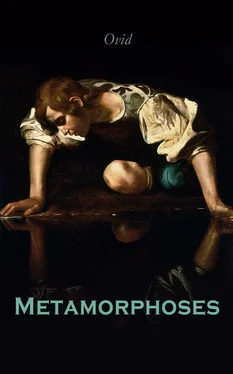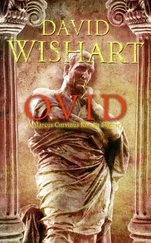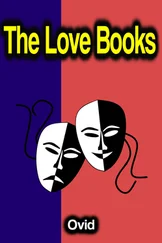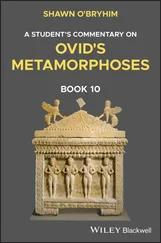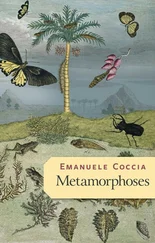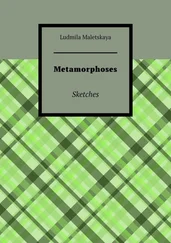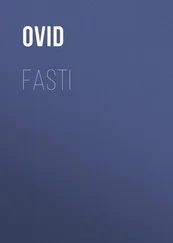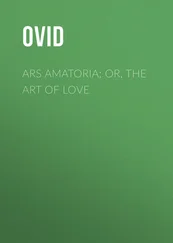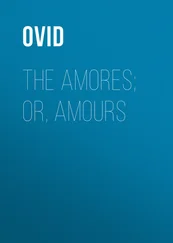54 Atlas. ]—Ver. 296. This was a mountain of Mauritania, which, by reason of its height, was said to support the heavens.
55 We are thrown. ]—Ver. 299. Clarke translates, ‘In chaos antiquum confundimur,’ ‘We are then jumbled into the old chaos again.’
56 The Hesperian Naiads. ]—Ver. 325. These were the Naiads of Italy. They were by name Phaëthusa, Lampetie, and Phœbe.
57 Passed without the sun. ]—Ver. 331. There is, perhaps, in this line some faint reference to a tradition of the sun having, in the language of Scripture, ‘stood still upon Gibeon, in his course, by the command of Joshua, when dispensing the divine vengeance upon the Amorites,’ Joshua, x. 13. Or of the time when ‘the shadow returned ten degrees backward’, by the sun-dial of Ahaz, 2 Kings, xx.11.
58 Sthenelus. ]—Ver. 367. He was a king of Liguria. Commentators have justly remarked that it was not very likely that a king of Liguria should be related to Clymene, a queen of the Ethiopians, as Ovid, in the next line, says was the case. This story was probably invented by some writer, who fancied that there were two persons of the name of Phaëton; one the subject of eastern tradition, and the other a personage of the Latin mythology.
59 The Ligurians. ]—Ver. 370. These were a people situate on the eastern side of Etruria, between the rivers Var and Macra. The Grecian writers were in the habit of styling the whole of the north of Italy Liguria.
60 Trivia. ]—Ver. 416. This was an epithet of Diana, as presiding over and worshipped in the places where three roads met, which were called ‘trivia.’ Being known as Diana on earth, the Moon in the heavens, and Proserpine in the infernal regions, she was represented at these places with three faces; those of a horse, a dog, and a female; the latter being in the middle.
61 Dictynna. ]—Ver. 441. Diana was so called from the Greek word δικτὺς, ‘a net,’ which was used by her for the purposes of hunting.
62 There was no deceit. ]—Ver. 446. Clarke translates ‘sensit abesse dolos,’ ‘she was convinced there was no roguery in the case.’
63 She of Parrhasia. ]—Ver. 460. Calisto is so called from Parrhasia, a region of Arcadia. Parrhasius was the name of a mountain, a grove, and a city of that country and was derived from the name of Parrhasus, a son of Lycaon.
64 Thou, mischievous one. ]—Ver. 475. Clarke, rather too familiarly, renders ‘importuna,’ ‘plaguy baggage.’
65 In front by the hair. ]—Ver. 476. ‘Adversâ prensis a fronte capillis,’ is rendered by Clarke, ‘seizing her fore-top.’ Had he been describing the combats of two fish-wives, such a version would have been, perhaps, more appropriate than in the present instance.
66 With black hair. ]—Ver. 478. To the explanation given at the end of the story, we may here add the curious one offered by Palæphatus. He says that Calisto was a huntress who entered the den of a bear, by which she was devoured; and that the bear coming out, and Calisto being no more seen, it was reported that she had been transformed into a bear.
67 Erymanthian forests. ]—Ver. 499. Erymanthus was a mountain of Arcadia, which was afterwards famous for the slaughter there, by Hercules, of the wild boar, which made it his haunt.
68 Graceful chariot. ]—Ver. 531. Clarke translates ‘habili curru,’ ‘her neat chariot.’
69 Larissæan. ]—Ver. 542. Larissa was the chief city of Thessaly, and was situate on the river Peneus.
70 Her infidelity. ]—Ver. 545. ‘Sed ales sensit adulterium Phœbeius,’ is translated by Clarke, ‘but the Phœban bird found out her pranks.’
71 Two-shaped. ]—Ver. 555. Cecrops is here so called, and in the Greek, διφυὴς from the fact of his having been born in Egypt, and having settled in Greece, and was thus to be reckoned both as an Egyptian, and in the number of the Greeks.
72 Lesbos. ]—Ver. 591. This was an island in the Ægean sea, lying to the south of Troy.
73 Plectrum. ]—Ver. 601. This was a little rod, or staff, with which the player used to strike the strings of the lyre, or cithara, on which he was playing.
74 Chariclo. ]—Ver. 636. She was the daughter of Apollo, or of Oceanus, but is supposed not to have been the same person that is mentioned by Apollodorus as the mother of the prophet Tiresias.
75 A baneful serpent. ]—Ver. 652. This happened when one of the arrows of Hercules, dipped in the poison of the Lernæan Hydra, pierced the foot of Chiron while he was examining it.
76 The three Goddesses. ]—Ver. 654. Namely, Clotho, Lachesis, and Atropos, the ‘Parcæ,’ or ‘Destinies.’
77 Philyrean. ]—Ver. 676. Chiron was the son of Philyra, by Saturn.
78 Messenian. ]—Ver. 679. Elis and Messenia were countries of Peloponnesus; the former was on the northwest, and the latter on the southwest side of it.
79 Plains of Pylos. ]—Ver. 684. There were three cities named Pylos in Peloponnesus. One was in Elis, another in Messenia, and the third was situate between the other two. The latter is supposed to have been the native place of Nestor, though they all laid claim to that honor.
80 Neleus. ]—Ver. 689. He was the king of Pylos, and the father of Nestor.
81 The old man. ]—Ver. 702. Clarke quaintly translates ‘at senior,’ ‘but then the old blade.’
82 The ‘Touchstone.’ ]—Ver. 706. It is a matter of doubt among commentators whether ‘index’ here means a general term for the touchstone, by which metals are tested; or whether it means that Battus was changed into one individual stone, which afterwards was called ‘index.’ Lactantius, by his words, seems to imply that the latter was the case. He says, ‘He changed him into a stone, which, from this circumstance, is called “index” about Pylos.’ ‘Index’ was a name of infamy, corresponding with the Greek word συκοφάντης, and with our term ‘spy.’
83 Munychia. ]—Ver. 709. Munychia was the name of a promontory and harbor of Attica, between the Piræus and the promontory of ‘Sunium.’ The spot was so called from Munychius, who there built a temple in honor of Diana.
84 Balearic. ]—Ver. 727. The Baleares were the islands of Majorca, Minorca, and Iviza, in the Mediterranean, near the coast of Spain. The natives of these islands were famous for their skill in the use of the sling. That weapon does not appear to have been used in the earliest times among the Greeks, as Homer does not mention it; it had, however, been introduced by the time of the war with Xerxes, though even then the sling was, perhaps, rarely used as a weapon. The Acarnanians and the Achæans of Agium, Patræ, and Dymæ were very expert in the use of the sling. That used by the Achæans was made of three thongs of leather, and not of one only, like those of other nations. The natives of the Balearic isles are said to have attained their skill from the circumstance of their mothers, when they were children, obliging them to obtain their food by striking it, from a tree, with a sling. While other slings were made of leather, theirs were made of rushes. Besides stones, plummets of lead, called ‘glandes,’ (as in the present instance), and μολύβδιδες, of a form between acorns and almonds, were cast in moulds, to be thrown from slings. They have been frequently dug up in various parts of Greece, and particularly on the plains of Marathon. Some have the device of a thunderbolt; while others are inscribed with δέξαι, ‘take this.’ It was a prevalent idea with the ancients that the stone discharged from the sling became red hot in its course, from the swiftness of its motion.
Читать дальше
